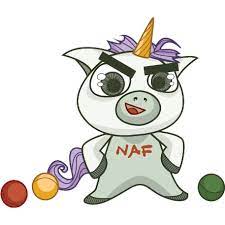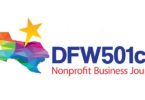Hi everyone. Quick reminder: On August 30th at 11am Pacific Time, there is a FREE webinar on legislative reforms on Donor-Advised Funds. Get more details and register here. There will be live captioning.
Also, this week I’ll be speaking virtually at the Nonprofit Marketing Summit, which is free for everyone. My lecture, called “Burn It All Down: Achieving Radical Impact in Nonprofit and Philanthropy” will be on Thursday August 24 at 11am Pacific Time. Get details and register here. There will be auto-captions. And I might have a sexy, smokey voice from weeks of chronic coughing.
After doing this work a while, I realize there are a few words and phrases in our sector that absolute raise my hackles and cause me to go immediately into fight or fight mode (yes, I said “fight” twice). These words and phrases include “overhead,” “logic model,” “sustainability,” “donor love,” “strategic philanthropy,” “nonprofits should act more like for-profits,” and “can I give you some friendly feedback about your personal appearance on that virtual keynote?”
But the one that causes me to want to dramatically flip over a silent auction table and scatter all the items on the floor is “resilient.” Especially when funders use it in talking about nonprofits.
During the Before Times, I received a phone call from a consultant. “Vu,” they said, “I was hired by the XYZ foundation to do some research and write a report with recommendations on how funders can support nonprofits to be more resilient, and your name came up as someone I should talk to.”
“Resilient?” I asked, sitting on the steps outside my office building, because our office was too small to accommodate everyone.
“Yes, how nonprofits can weather different challenges, especially the lack of funding, funders’ changing priorities, the unpredictable economy, etc.”
I’m glad it was a phone call and not a video call, because my eyes rolled so hard that I’m pretty sure I lost consciousness for several seconds. “Please tell funders the best way for them to build nonprofit resilience is to give nonprofits lots of money. Lots of unrestricted money. For a long period of time. And to stop spending resources on pointless research on topics where everyone already knows the answer.”
Ten years and an ongoing pandemic later, and I’m frustrated to see this conversation still exists in the same way in our sector. We need to talk about it. I want us all, but especially funders, to stop using this framework altogether, because while it seems noble, it’s destructive to our sector, in multiple ways:
First, the idea of resilience entrenches people in accepting inequitable systems instead of challenging them: There are lots of articles about the problematic nature of “resilience” when it is applied to people and communities who are most affected by systemic injustice. “Children are resilient,” we often say when kids go through traumatizing stuff, which allows us a measure of comfort, but this often makes us complacent about changing the systems and conditions that force kids to have to be resilient in the first place.
The same goes for nonprofits. Often when funders talk about ensuring their nonprofit partners are strong and resilient during challenging times, they’re not focused on fixing the systems that make nonprofit work necessary in the first place. Or the systems of unpredictable, subsistence funding that keeps most nonprofit at a level of basic survival that sparks these conversations around resilience.
Second, it continues to place the onus on nonprofits to fund their programs and services: “Resilience” and “sustainability” are two scoops of the same hummus. Both are grounded on this belief that nonprofits are responsible for ensuring their own survival, and funders’ financial support through grants is out of the goodness of funders’ hearts, something extraneous that nonprofits should be thankful for, but never rely on.
The “resilience” and “sustainability” framework perpetuates the idea that nonprofits are freeloaders “dependent” on funders and donors. The problem with this is, of course nonprofits are by their nature dependent on funders and donors! As long as there’s inequity and nonprofits need to exist to address it, they will be dependent. Stop thinking this is a bad thing, when it’s just how things are. Nonprofits’ jobs should be to run programs and services that are needed by the community, and funders’ jobs should be to fund these nonprofits for as long as they are effective.
Third, it stifles imagination and encourages an incremental approach to the work: When we focus on things like organizational sustainability and resilience, for both nonprofits and foundations, there is a risk that we’ve accepted that inequity and injustice and ultimately unsolvable. Foundations that are deeply attached to the idea of giving out a small amount of their endowment each year so they can exist in perpetuity have lost their imagination. They don’t think we can solve problems in the present, so they must save for the future. This is a self-reinforcing prophecy.
The same goes for nonprofits and movements. If we haven’t lost our imagination, we should not be so focused on long-term sustainability or resilience. We should be focused on effectively addressing issues…and then going out of business. That means any resilience-aligned thinking should be toward a short-term existence, ensuring nonprofits and movements are strong enough to effectively to do the work for while they’re needed, with the goal of them sunsetting immediately after.
…









